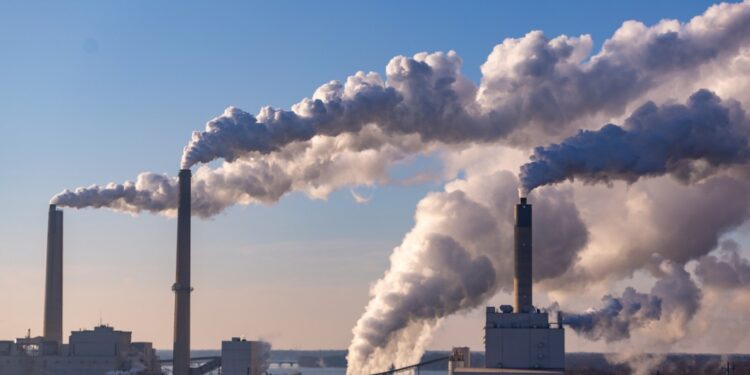On March 30, three employees of the Colorado Department of Public Health & Environment (CDPHE) sent a letter to the U.S. Environmental Protection Agency (EPA) Office of Inspector General Sean O’Donnell. The group alleges that CDPHE urged them to ignore violations of air quality standards in issuing permits.
The employees work for CDPHE’s Air Pollution Control Division (APCD), which is responsible for enforcing National Ambient Air Quality Standards (NAAQS). NAAQS is a requirement of the EPA’s Clean Air Act and centers on measuring “six principal pollutants…which can be harmful to public health and the environment.” According to the letter, the staff-level employees are responsible “for conducting modeling of emissions from new or modified stationary sources of NAAQS criteria pollutants.”
In the employees’ letter, which was submitted through the organization Public Employees for Environmental Responsibility (PEER), they claim that on March 15, CDPHE enacted a rule prohibiting “air quality modeling staff from reviewing NAAQS compliance for hourly Nitrogen Dioxide (NO2) and Sulfur Dioxide (SO2) limits, 3-hour standards for SO2, and daily standards for particulate matter smaller than 2.5 micrometers (PM2.5).” The decision ruled that the APCD’s new policy would be that “NAAQS compliance in air permit applications will no longer be verified” for the above standards, according to the employees’ letter.
According to the letter, CDPHE allegedly engaged in several behaviors that violated NAAQS, including:
- “Suppressing information demonstrating that pending permits would lead to violations of NAAQS;
- Approving air quality permits which violate NAAQS; and
- Ordering modeling staff to ignore modeled NAAQS violations which would conflict with nonbinding agency guidance documents.”
The letter also includes a list of permits that were allegedly “issued with potential or actual modeled NAASQ violations.”
The group urges Inspector General O’Donnell to “review the following alleged instances of violations of law, mismanagement, and abuse of authority by CDPHE,” especially the new policy from March 15. “The March 15, 2021 policy prohibiting modeling of these NAAQS is the latest and most concrete instance of a pattern of unlawful conduct which is directly responsible for Colorado’s precipitous decline in air quality in the last decade,” the letter concludes.
According to PEER’s March 30 press release, the air pollutants mentioned in the letter “drive unhealthy levels of ozone long plaguing Colorado’s Front Range.” PEER states that Colorado’s Front Range “has been in violation of NAAQS…since 2012” and that the Colorado governor tried to address the situation in 2020 “by reclassifying the region as being in “serious” nonattainment.”
“Colorado’s critical air quality safeguards are being monkey wrenched by high level officials,” stated PEER Rocky Mountain Director Chandra Rosenthal, who is also a former attorney for the U.S. Department of Justice. “How can air pollution standards be enforced if emissions are not verified?”
The press release states that PEER attorneys also wrote to CDPHE’s Executive Director Jill Hunsaker Ryan, informing her that “these disclosures of air pollution violations are covered by the Colorado Whistleblower Protection Act which forbids retaliation for reporting violations of law.”
Read the whistleblowers’ letter to the EPA Office of Inspector General.


